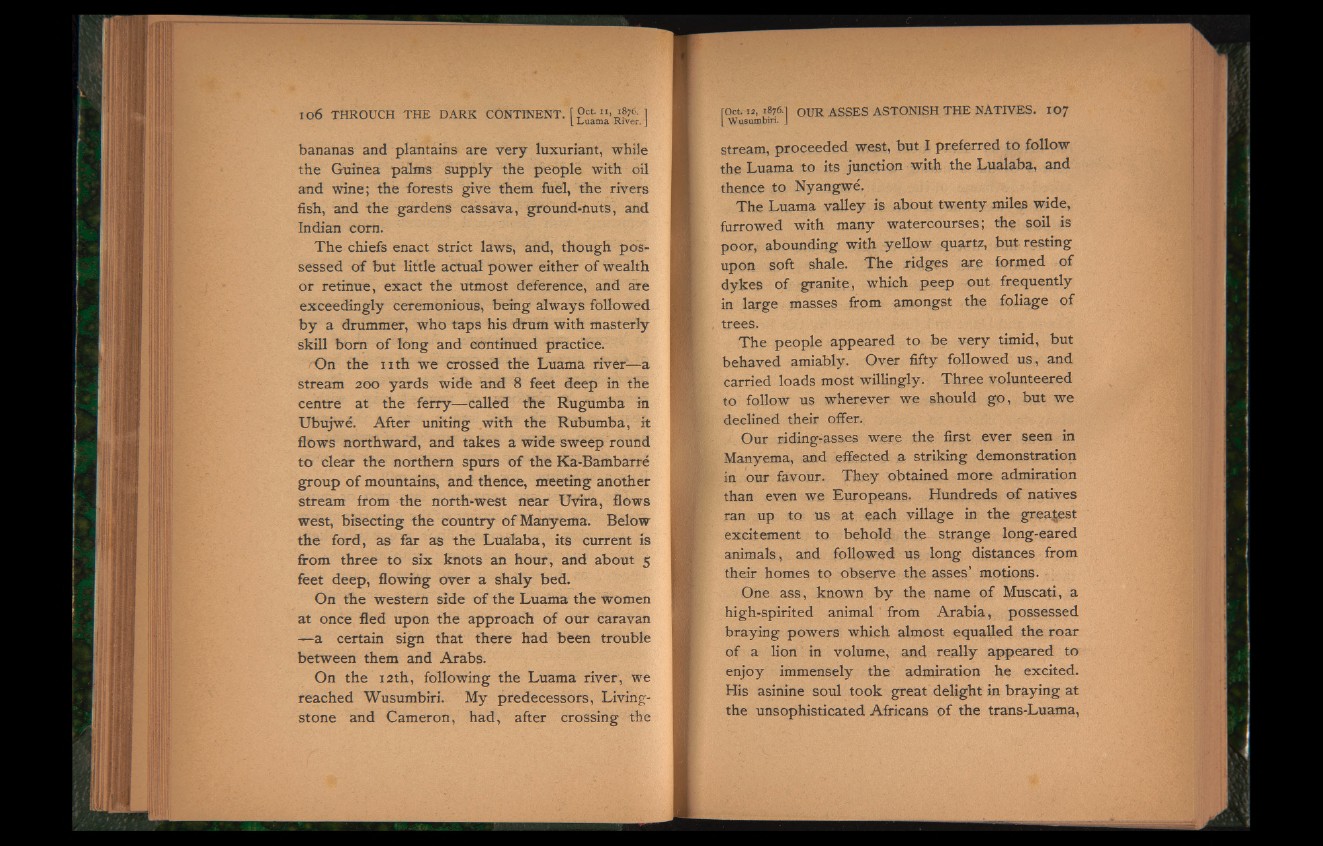
bananas and plantains are very luxuriant, while
the Guinea palms supply the people with oil
and wine; the forests give them fuel, the rivers
fish, and the gardens cassava, ground-nuts, and
Indian com.
The chiefs enact strict laws, and, though possessed
of but little actual power either of wealth
or retinue, exact the utmost deference, and are
exceedingly ceremonious, being always followed
by a drummer, who taps his drum with masterly
skill born of long and continued practice.
On the n th we crossed the Luama river—a
stream 200 yards wide and 8 feet deep in the
centre at the ferry— called the Rugumba in
Ubujwe. After uniting with the Rubumba, it
flows northward, and takes a wide sweep round
to clear the northern spurs of the Ka-Bambarre
group of mountains, and thence, meeting another
stream from the north-west near Uvira, flows
west, bisecting the country of Manyema. Below
the ford, as far as the Lualaba, its current is
from three to six knots an hour, and about 5
feet deep, flowing over a shaly bed.
On the western side of the Luama the women
at once fled upon the approach of our caravan
— a certain sign that there had been trouble
between them and Arabs.
On the x 2th, following the Luama river, we
reached Wusumbiri. My predecessors, Livingstone
and Cameron, had, after crossing the
roct. 12, 1876.] OUR ASSES ASTONISH THE NATIVES. 107
[ Wusumbiri. J
stream, proceeded west, but I preferred to follow
the Luama to its junction with the Lualaba, and
thence to Nyangwe.
The Luama valley is about twenty miles wide,
furrowed with many watercourses; the soil is
poor, abounding with yellow quartz, but resting
upon soft shale. The ridges are formed of
dykes of granite, which peep out frequently
in large masses from amongst the foliage of
trees.
The people appeared to be very timid, but
behaved amiably. Over fifty followed us, and
carried loads most willingly. Three volunteered
to follow us wherever we should go, but we
declined their offer.
Our riding-asses were the first ever seen in
Manyema, and effected a striking demonstration
in our favour. They obtained more admiration
than even we Europeans. Hundreds of natives
ran up to us at each village in the greatest
excitement to behold the strange long-eared
animals, and followed us long distances from
their homes to observe the asses’ motions.
One ass, known by the name of Muscati, a
high-spirited animal from Arabia, possessed
braying powers which almost equalled the roar
of a lion in volume, and really appeared to
enjoy immensely the admiration he excited.
His asinine soul took great delight in braying at
the unsophisticated Africans of the trans-Luama,